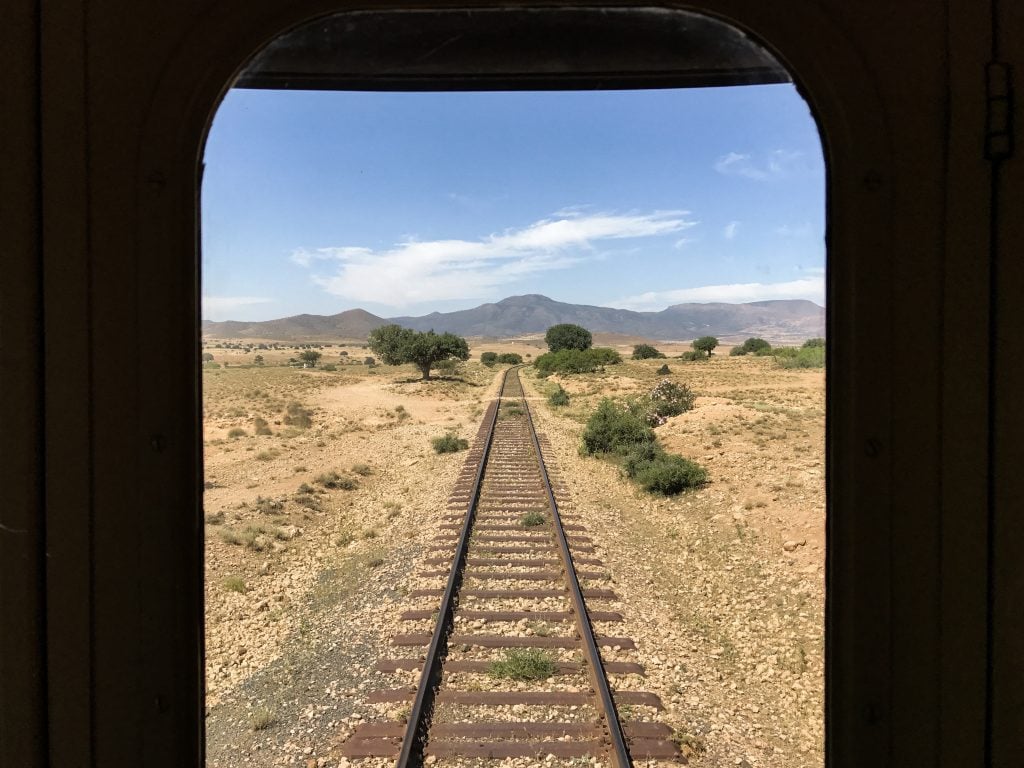
Lorem, ipsum dolor sit amet consectetur adipisicing elit.
Nisi autem molestiae quasi itaque sunt saepe optio maxime.
iste repellendus quos necessitatibus fuga in nam placeat.
Lorem, ipsum dolor sit amet consectetur adipisicing elit.
Sign in to access your account, subscription and more.
Create a new account to access your subscription.
The country is looking to boost its infrastructure ahead of the 2030 FIFA World Cup which it will co-host with Spain and Portugal.
December 16th, 2024
By
Ben Payton
Morocco has received $14bn of investment offers for its masterplan to upgrade rail links in the country, according to a statement by African Development Bank President Akinwumi Adesina at the Bank’s flagship Africa Investment Forum last week.
The figure significantly exceeds the target of $8.8bn set by the country’s National Railways Office (ONCF).
The AfDB itself signed-off on a $350m loan to Morocco for infrastructure projects at the forum. The bank is also considering loaning $650m to help the country strengthen its infrastructure ahead of the 2030 FIFA World Cup, which Morocco will co-host with Spain and Portugal. The loan would help to boost economic governance, improve water supplies and establish an industrial zone in the Nador West Med port.
Morocco is seeking to significantly expand its rail network to 3,800 km by 2040, up from around 2,200 km today. The expansion plan would see 87% of the population connected by rail, according to the ONCF, with the network linking 43 cities, 15 international airports and 12 seaports.
Multiple projects to extend the current network are already in progress. The ONCF plans to invest $1bn in buying new trains, upgrading existing rolling stock, and building new maintenance workshops between 2025 and 2027.
Morocco already has some of Africa’s best rail infrastructure, including its only high-speed rail service, Al Boraq, which runs for 320km between the cities of Tangier and Marrakesh.
A project is currently underway to extend the line to Marrakesh via Casablanca International Airport in time for the 2030 World Cup. Engineering contracts for the project have been awarded to multiple Moroccan and Chinese companies.
A future extension of Al Boraq services to Agadir is also on the drawing board. These projects would extend the high-speed network to 1,280km.
The building spree reflects the need for the country to upgrade its transport links as it looks forward to handling an influx of several hundred thousand visitors at the World Cup. Morocco was officially confirmed as a co-host of the tournament last Wednesday. It plans to host matches in six cities – Agadir, Casablanca, Fez, Marrakesh, Rabat and Tangier. The Hassan II stadium, currently under construction in Casablanca, is one of three stadiums in contention to host the final, alongside Madrid’s Estadio Santiago Bernabeu and the Camp Nou in Barcelona.
However, beyond the World Cup, the extent of investor interest in Moroccan rail infrastructure also reflects the positive long-term economic outlook. The country is increasingly capitalising on opportunities to export energy and industrial goods across the Mediterranean to the European market.
You’ve read all your free articles for this month! Subscribe now to enjoy full access to our content.
£8.00 / month
Receive full unlimited access to our articles, opinions, podcasts and more.
£70.00 / year
Our best value offer – save £26 and gain access to all of our digital content for an entire year!
Business
Dec 12th, 2024
By Sena Voncujovi
Business
Dec 12th, 2024
By Kariuki Ngari
Business
Dec 9th, 2024
By Will McBain
Business
Dec 6th, 2024
By Lennox Yieke
InFocus
Aug 30th, 2023
Africa has some of the world’s most precious ecosystems, including vast carbon-storing rainforests of global significance. Protecting biodiversity is both a response and challenge to global warming.
InFocus
Aug 30th, 2023
InFocus
Aug 30th, 2023
Copyright © 2024 African Business. All rights reserved.
Terms of use
Cookie Policy
Privacy Policy

